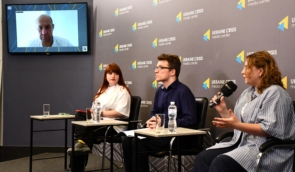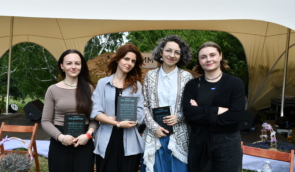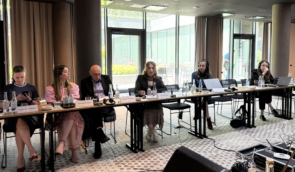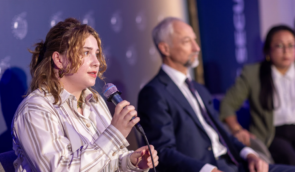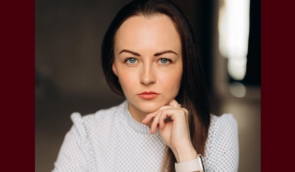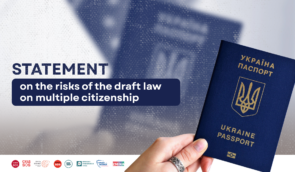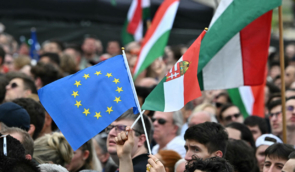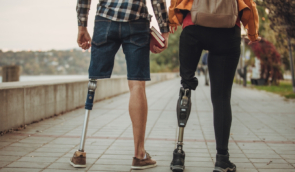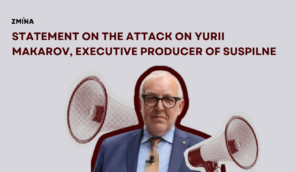ZMINA joined the13th Sakharov conference in Vilnius: how to win a lasting peace
On 18-19 May 2023, the 13th International Sakharov Conference was held in Vilnius, focusing on the complex issues that Ukraine would face to win the war and after the guns fell silent and the country’s reconstruction commenced. Tetiana Pechonchyk, Head of the Board of ZMINA, took part in the discussion.
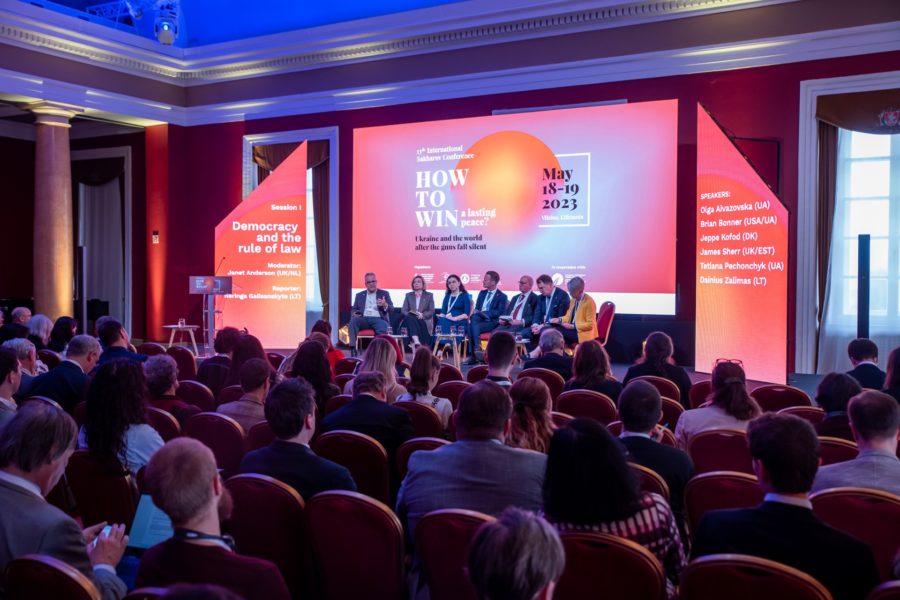 Photo: Andrei Sakharov Research Center
Photo: Andrei Sakharov Research CenterAlthough the war is still going on, it will end one day, and there will be a need in Ukraine’s reconstruction: the country that was invaded in 2014 and then again in 2022 has been ravaged, with destroyed infrastructure, a faltering economy, tens of thousands of dead and hundreds of thousands of people who have been traumatized by the consequences of war.
The conference gathered dozens of experts in different fields to consider the ways of Ukraine’s reconstruction in various areas: politics, economy, mental health, and infrastructure reconstruction.
The conference was opened with the words of Marius Janukonis from the Ministry of Foreign Affairs of Lithuania, Deputy Minister of Foreign Affairs of Ukraine Emine Dzheppar, founding member of the Ukrainian Helsinki Group, and former political prisoner in Soviet times Myroslav Marynovych, dean of the faculty of Political Science and Diplomatic Studies at Vytautas Magnus University Sarunas Liekis, and Robert van Voren from Andrei Sakharov Research Center.
“We decided to focus the conference on the consequences of the Russian war against Ukraine, which I believe will determine the future of freedom in the world,” said the organizer of the conference, Robert van Voren.
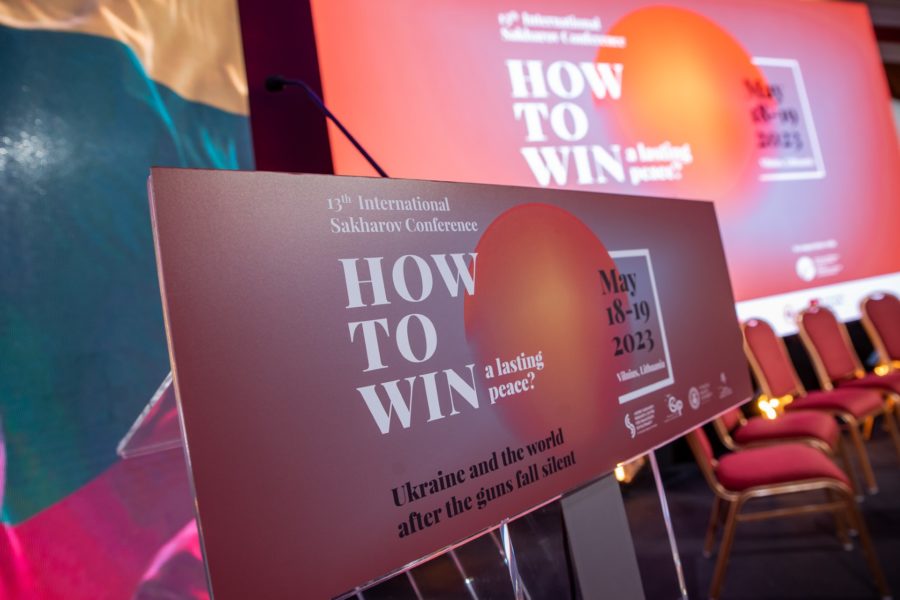 Photo: Andrei Sakharov Research Center
Photo: Andrei Sakharov Research CenterTetiana Pechonchyk, Head of the Board of ZMINA, participated in the first session “Democracy and the rule of law.” Since the date of the conference coincided with the Day of Remembrance of the Genocide of the Crimean Tatar People, Pechonchyk started her speech by reminding those tragic events to the public: nearly 200,000 Crimean Tatars were forcibly expelled from their native peninsula, and many of them died of hunger and disease during the journey or in exile. It went unpunished, and now these crimes are being repeated: Crimean Tatars are persecuted, imprisoned, and exterminated. Moreover, Russia began deportations from the occupied territories of Ukraine and committed other international crimes en masse. As of today, the Prosecutor General’s Office of Ukraine has registered around 85,000 crimes committed by Russians on Ukraine’s territory, which is only the tip of the iceberg.
“All crimes must be punished in the name of peace and democracy and for the sake of the future of not only Ukraine but the whole of Europe,” emphasized Pechonchyk.
After, three more thematic sessions happened during the conference: reconstruction and environment; trauma, memory and recovery; national reconciliation.
Many speakers emphasized that Ukraine must be reborn renewed, with democratic values and transparency in government institutions.
“It is important that during the rebuilding of the country there is no attempt to return to the old ways, but the crisis is viewed as an opportunity to move forward and create a better state,” states van Voren.
 Photo: Andrei Sakharov Research Center
Photo: Andrei Sakharov Research CenterOn 19 May the auction of painting by Petras Vaitiekunas and Ukrainian ceramics at the gallery of the Town Hall, with the proceeds going to projects in support of Ukraine, was held. The last day of the conference ended with a charity concert for Ukraine by the pianist from Odesa Oleksiy Botvinov and the Lithuanian ensemble NIKO.
Conference guests were invited to the reception at the Residence of the Ambassador of the Kingdom of The Netherlands to Lithuania, Jack Twiss-Quarles van Ufford.
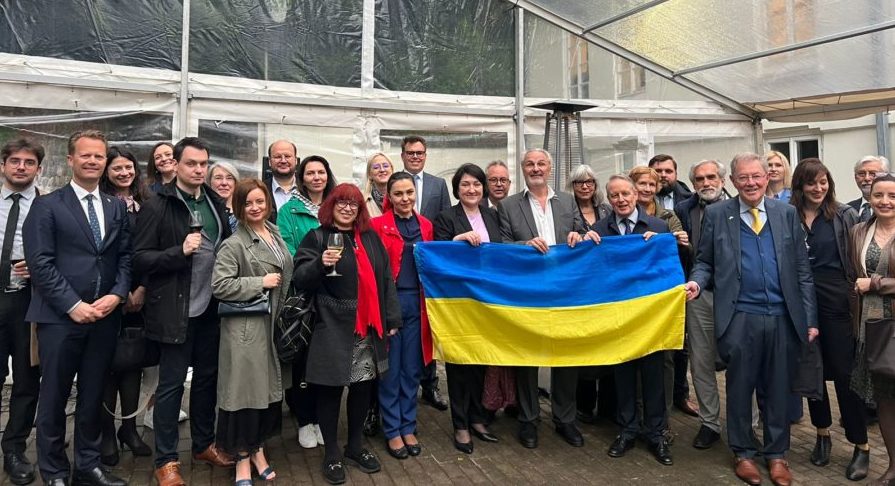
Watch the screening of the event here.
If you have found a spelling error, please, notify us by selecting that text and pressing Ctrl+Enter.

